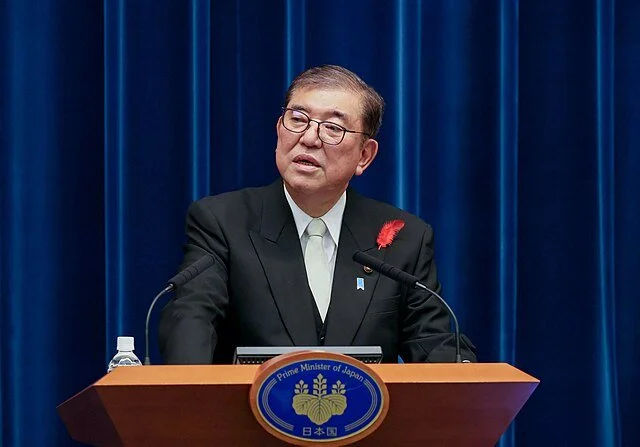The Compass
The George Washington University’s
Undergraduate International Affairs Blog
The Unfinished Business of Our Time: Restrictions of Women’s Autonomy in Islamic Countries
Although women represent half of the world’s population, gender inequality runs rampant. Gender inequality dismisses human development, while women’s empowerment has spurred productivity and economic growth. In October 2024, governments released statements centered around government interference in women’s autonomy in Afghanistan, Turkey, and Pakistan. News about the government and women’s autonomy in these countries has highlighted cases of gender inequality. Social media has become a major tool in spreading news of the government's mistreatment of women to an international audience. At the same time, each country has a separate response to address its violation of human rights. As the UN Secretary-General has called gender inequality the “unfinished business of our time,” governments must address the violence that has hindered women’s success to maintain legitimacy.
“Asian NATO”: The Prospect of a Regional Security Proposal
The proposal of an "Asian NATO" has gained prevalence in Japanese politics as a potential security relationship for the Indo-Pacific and Asia. Driven by concerns over the nuclear status in China, North Korea, and Russia, Japanese leaders, including Prime Minister Shigeru Ishiba and Foreign Minister Takeshi Iwaya, recently proposed a defense agreement with East Asian allies to stabilize regional tensions. While the proposal is inclusive and not directed at any specific nation, it has faced skepticism from the U.S., which favors strengthening existing alliances, and China, which perceives it as a threat to its regional influence. Though not an imminent priority, this initiative reflects shifting regional security dynamics and the need for global cooperation in addressing emerging threats.
British Energy: Independence and Decreasing Of Reliance In A Globalized World Society
This brief examines the UK’s move towards energy independence in response to the Russian-Ukrainian war. Once a net energy exporter, the UK is now focused on reducing foreign oil reliance. The British Energy Security Strategy, launched by former Prime Minister Boris Johnson, emphasizes renewable energy investments and job creation. Current Prime Minister Keir Starmer continues this focus on offshore wind, hydrogen, and nuclear power. The shift aims to enhance national security, stimulate economic growth, and support the UK’s climate commitments, positioning it as a leader in global climate action.
Japan’s Navy: Its Steady Future Into the Ishiba Administration
With the new Ishiba administration in Japan starting to take hold, it is about time to talk about Japan's maritime capabilities. Tensions between Japan and China only seem to be increasing, one part being an incident where China flew a plane into Japanese airspace. Japan itself navigated the Taiwan Strait for the first time, proclaiming the need for freedom of navigation within international waters. Under Shigeru Ishiba, Japan's navy does not seem set to expand, but rather to improve, and to increase its range of actions by revising the Status of Forces Agreement with the US. While ministers he has appointed, such as Foreign Minister Iwaya and Defense Minister Gen, are both former defense ministers, they both may clash with Ishiba's own vision, showing a steady, yet possibly uncertain future for Japan's Maritime Self Defense Force (JMSDF) and its maritime capabilities.
Reducing Child Marriage in Malawi
Child marriage is a violation of human rights that occurs worldwide. An estimated 640 million women today were married as children. Child marriage can occur in countries with high poverty, deeply set cultural practices, and social expectations which young girls face with no other alternative. Malawi is a country in Southeastern Africa, a region that is home to 50 million child brides. The United Nations Population Fund of Malawi states that 47% of women in the country are married before the age of 18. However, the Marriage Act of Malawi in 2017, which protects young girls from underage marriage, was passed due to the work of civil society. The country displays hope in preventing child marriage within the country through intervention that other countries can display in efforts to solve this major human rights violation.
Expanding Their Reach: Iranian Efforts to Interfere in the 2024 American Presidential Election
The contentious political environment surrounding the 2024 American Presidential Election between Vice President Kamala Harris and Former President Donald Trump provides the golden opportunity for America’s adversaries to interfere in the election. Chief among these adversaries is the government of Iran. Continuing their history of American presidential election interference, the Iranian government and its agents are seeking to sow distrust and create chaos in the electoral process and democratic systems of the United States. They are attempting to achieve this aim through the coordinated compromising of critical computer accounts, distributing stolen restricted information, and the dissemination of disinformation through social media and news websites. Additionally, the Iranian government stokes fears of political violence through the ongoing threat to the life of Former President Trump. This multi-pronged interference campaign against the 2024 presidential election is the most serious threat ever posed by the Iranian government in an election. By sowing distrust in the American democratic electoral system, the Iranian government is seeking to make the United States less stable and secure.








